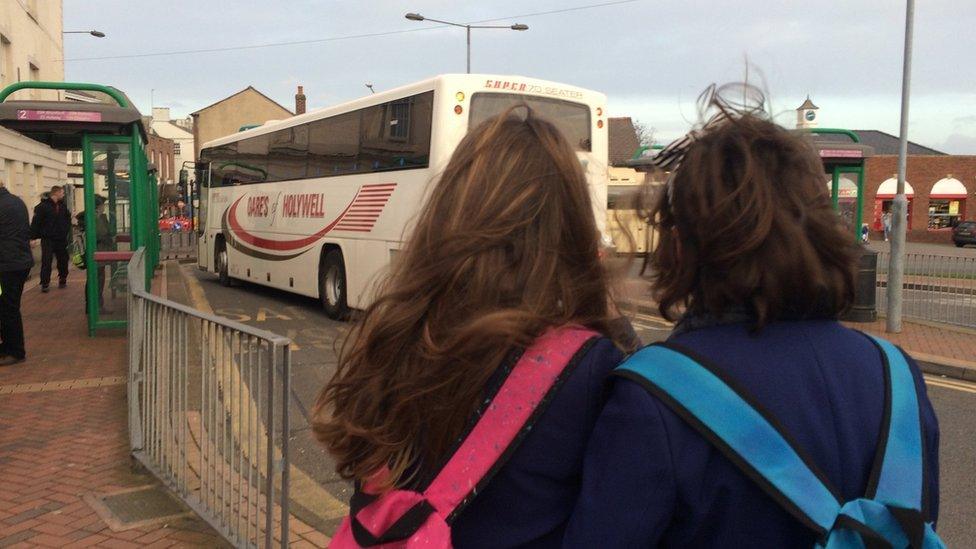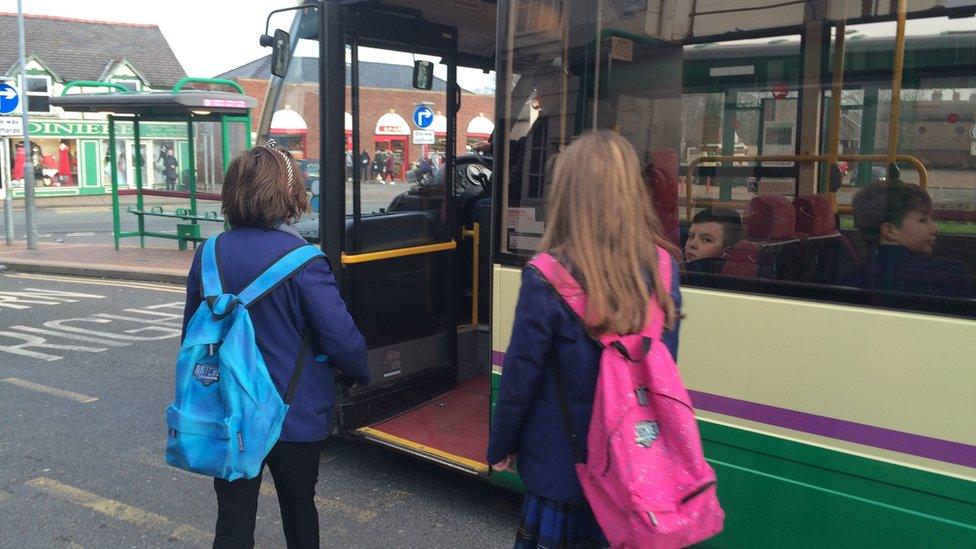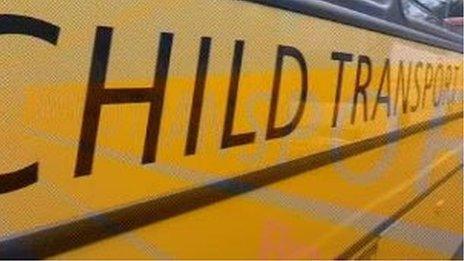Flint faith school bus 'discriminating against non-Catholics'
- Published

Pupils watch the council-run bus - dubbed the 'Catholic bus' - leave the bus stop
A head teacher has called for a school bus policy to be scrapped after parents complained it divided pupils on whether or not they were Catholic.
Pupils at St Richard Gwyn Catholic High School in Flint receive a free bus pass if they live more than three miles from the school and are Catholic.
However non-Catholics have to pay for the council-run bus, or for a more expensive pass on a school-run minibus.
Flintshire council said the policy was being reviewed.
The school's head teacher Ronald Keating told BBC Radio Wales: "It's an unusual policy in that it's done differently from other local authorities where all transport has been subject to being taken away.
"I would say that for us here that's been a policy which has been much more painful because it means some children get, while others do not, and that's against the principles of Catholic education."

Sadie and Ella catch the 'non-Catholic' school-run service
He wants the council to revert to its previous transport policy, saying: "In effect, I suppose I wish they would scrap it."
Catholic pupils who live more than three miles away are entitled to the pass as it is the nearest Catholic school they could attend, but non-Catholics could in theory attend a nearer non-faith school.
The council runs a bus service for those entitled to free passes, dubbed the "Catholic bus" by pupils and parents, although non-Catholic pupils can apply for a concessionary pass for £55 to use it.
The school also runs its own minibus, which costs £149 for a term.
Parent Paul Lee said: "It's blatant secular discrimination. They stand at the same bus stop, they wear the same uniform.
"Common sense should prevail. Look after the children - that should come first."
Flintshire council said: "The council has not recently changed its discretionary transport policies. Current policies are not unique to this authority or area.
"The council doesn't duplicate services and provides transport for eligible pupils. The passes used on routes do not distinguish between different forms of eligibility or payment for places."
"Others have since started to provide transport to the school not at a cost to the council.
"All discretionary transport provision and policies are currently subject to a review.
"This can include circumstances in which charging is legal and appropriate. Any recommendations from that review will also in turn need to be subject to the statutory consultation and decision making processes prior to implementation."
- Published21 May 2013
